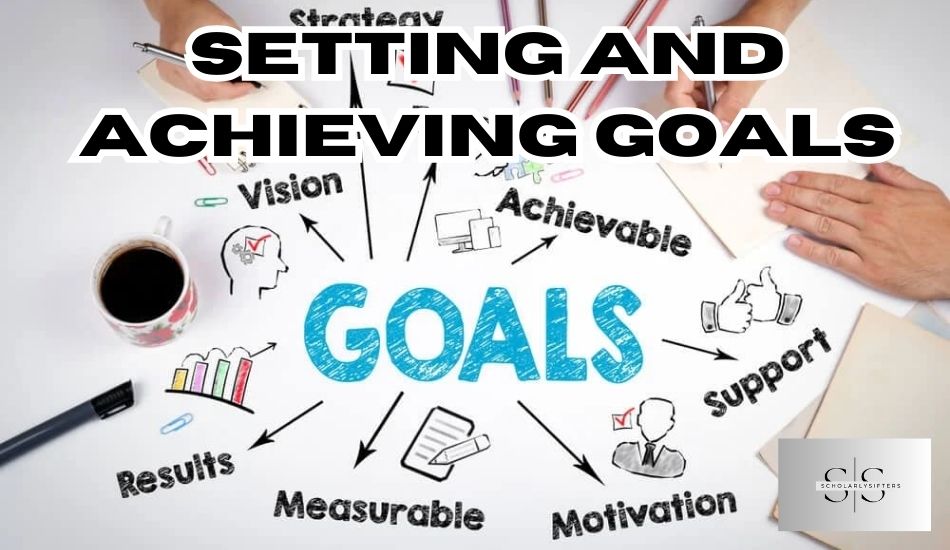No products in the cart.

Dealing with Rejection: Embracing Resilience and Personal Growth
Introduction of Dealing with Rejection

Dealing with Rejection is an inevitable part of life that many of us will encounter at some point. It can take various forms and occur in different aspects of life, such as relationships, job applications, and creative pursuits. The emotional impact of rejection can be profound, affecting our self-esteem and well-being. In this article, we will explore the definition of rejection, common scenarios of rejection, dealing with rejection and the emotional toll it can take.
Definition of Rejection
Rejection refers to the act of dismissing or refusing someone or something, often based on subjective factors or criteria. It can manifest in numerous ways, including being turned down for a job, ending a relationship, or facing criticism for creative endeavours. Understanding that rejection is a natural part of life can help us cope with its emotional aftermath.
Understanding Dealing with Rejection
Normalizing Rejection as a Part of Life:
It is crucial to acknowledge that everyone experiences rejection at some point. Whether it’s a small setback or a major disappointment, no one is immune to rejection. By recognizing it as a common human experience, we can avoid feeling isolated or inadequate when facing rejection.
Recognizing That Rejection is Not a Reflection of Self-Worth:
One of the most significant challenges in dealing with rejection is separating our self-worth from the outcomes of our endeavours. Rejection does not define our value as individuals. Often, it merely signifies a mismatch between our aspirations and the situation at hand. Keeping this perspective can help us maintain a healthier self-image.
Identifying the Root Causes of Rejection
Understanding the reasons behind rejection can provide valuable insights for personal growth and improvement. Sometimes, rejection occurs due to circumstances beyond our control, while other times, it may be related to specific aspects of ourselves or our actions. Reflecting on the reasons for rejection can guide us in making positive changes for the future.
Coping Mechanisms for Dealing with Rejection
Acknowledging and Processing Emotions:
Disappointment:
Experiencing disappointment after rejection is natural. It’s essential to allow ourselves to feel the emotions fully without suppressing them. This acknowledgment can pave the way for healing and resilience.
Sadness:
Sadness may accompany rejection, and it’s okay to grieve the loss of an opportunity or relationship. By allowing ourselves to feel sad, we open the door to healing and emotional growth.
Frustration:
Feeling frustrated is a common response to rejection, especially when our efforts seemingly went unrewarded. Acknowledging this frustration can help us channel it constructively into future endeavours.
Practicing Self-Compassion:
Offering ourselves kindness and understanding during times of rejection is crucial. We should avoid harsh self-criticism and negative self-talk, as it can exacerbate emotional distress. Instead, practicing self-compassion allows us to be gentle with ourselves and build resilience.
Seeking Support from Friends, Family, or Professionals:
Sharing our feelings of rejection with loved ones can provide comfort and validation. They can offer a fresh perspective and remind us of our strengths and past successes. If needed, seeking support from a therapist or counsellor can be beneficial in processing complex emotions related to rejection.
Engaging in Stress-Reducing Activities
Engaging in activities like exercise, meditation, or hobbies can help alleviate stress and promote a sense of well-being. Regular physical activity and mindfulness practices can be valuable tools in managing the emotional impact of rejection.
Reframing Rejection as an Opportunity
Learning from Rejection Experiences:
Rejection can be a valuable teacher, providing us with opportunities to learn and grow. When we encounter rejection, it’s essential to reflect on the experience and identify areas where improvement is possible. For instance, in a job application, understanding the reasons for rejection can help us tailor our future applications to better match the requirements. Learning from rejection experiences can be a stepping stone towards success in future endeavours.
Embracing Resilience and Personal Growth
Dealing with rejection requires resilience – the ability to bounce back from setbacks and continue moving forward. Embracing rejection as an opportunity to build resilience can empower us to face challenges with greater determination and optimism. Each rejection can become a stepping stone on our journey of personal growth and self-improvement.
Managing Rejection in Specific Scenarios

Romantic Relationships:
The end of a romantic relationship can be emotionally challenging. It’s essential to allow ourselves to grieve the loss and process our feelings. Seeking support from friends or a therapist can be helpful during this time. Engaging in self-care and focusing on personal growth can aid in healing and moving forward.
Moving On and Opening up to New Possibilities:
After a breakup, it’s essential to give ourselves time to heal before entering a new relationship. Openness to new experiences and opportunities can lead to unexpected and rewarding connections. Embracing a positive outlook and taking things at our own pace can foster healthy relationships in the future.
Job Applications and Career
Handling Job Rejections and Staying Motivated:
Job rejections are a common part of the job search process. It’s crucial to avoid taking them personally and maintain a positive mindset. Reminding ourselves of our strengths and accomplishments can boost our confidence and motivation to continue the job search.
Improving Skills and Qualifications:
Rejections can highlight areas where we may need to enhance our skills or qualifications. Taking the time to invest in professional development and learning opportunities can make us more competitive in the job market and increase our chances of success.
Creative Endeavours (e.g., Writing, Art, Entrepreneurship)
Dealing with Criticism and Rejection in Creative Pursuits:
Creative endeavours often invite subjective opinions and criticism. It’s essential to remember that not everyone will appreciate our work, and that’s okay. Separating our self-worth from external validation can help us stay true to our artistic vision and persevere through rejection.
Persisting in the Face of Challenges
Successful creatives and entrepreneurs often encounter numerous rejections before achieving recognition. Tenacity and perseverance are vital in these fields. Embracing rejection as a normal part of the creative process can help us remain focused on refining our craft and reaching our goals.
Setting Realistic Expectations
Unrealistic expectations can amplify the impact of rejection. While it’s essential to aim high, it’s equally crucial to set realistic and achievable goals. Recognize that rejection is a normal part of any journey, and not every attempt will yield immediate results. By setting attainable objectives, you can maintain a sense of accomplishment even amid setbacks, making it easier to cope with rejection.
Celebrating Successes and Achievements:
When dealing with rejection, it’s easy to focus solely on the negative outcomes. However, it’s equally important to acknowledge and celebrate your successes and achievements, no matter how small they may seem. Take the time to appreciate your progress, milestones, and the efforts you’ve invested in your pursuits. This positive reinforcement can boost your confidence and self-belief, making rejection easier to handle.

Conclusion
Dealing with Rejection is an unavoidable aspect of life, but it doesn’t have to be a source of discouragement or despair. By embracing rejection as an opportunity for growth and learning, we can build resilience to handle life’s challenges with greater strength and optimism.
In conclusion, rejection should not deter us from pursuing our dreams and aspirations. Instead, it should serve as a catalyst for personal growth and development. Embrace rejection as an inherent part of life’s journey, and let it inspire you to approach future endeavours with a positive outlook and unwavering determination. Remember, resilience is the key to transforming rejection into a stepping stone towards success and fulfilment.






